A Swiss engineer in the Hezbollah Valley
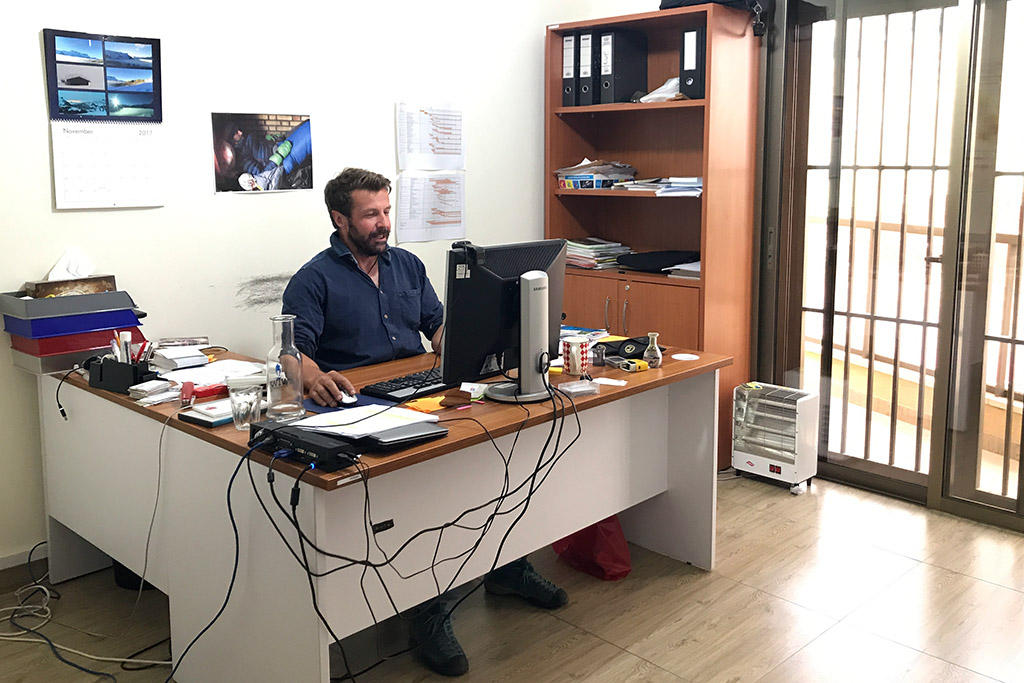
Lucas Beck works on a Swiss water project in the Bekaa Valley in Lebanon. swissinfo.ch shadowed the expert of the Swiss Humanitarian Aid Unit for several days. This is a story about red zones, water and Lebanese small talk.
Lucas Beck overtakes two vehicles with his car. It is noisy and dusty amid crazy hooting and reckless driving. I am hanging onto the door handle trying to ignore the truck speeding past us. “Welcome to Lebanese traffic,” was Beck’s response to my obvious worry. This drive along the national road between the metropolis Beirut and Zahlé, the capital of the Bekaa Valley, is his daily commute.

More
Swiss humanitarian aid unit: rapid response experts for crisis zones
The 44-year-old engineer of the federal technology institute ETH ZurichExternal link specialises in water and conflict management and has lived in Lebanon for two years. His work with Switzerland’s Humanitarian Aid has taken him to places like South Sudan, Rwanda and Haiti. “In comparison, it’s actually pretty relaxed here,” Beck says. He heads a project of the Swiss Agency for Development and Cooperation (SDC)External link. Their cooperation partner is the Bekaa Water Establishment (BWE)External link, which is part of the Lebanese Ministry for Energy.
Switzerland supports the local authority in water and waste water management as well as in improving drinking water quality. The three-year programmeExternal link, which is one of 12 Swiss projects currently running in Lebanon, has a budget of CHF4 million ($4 million). The biggest challenges are the lack of infrastructure and the large number of Syrian refugees in the region.
Fruits, wine and cannabis
Beck’s work takes him to the Bekaa Valley which stretches across the East of the country, every single day. The land is fertile, produces wine as well as vegetables and even cannabis, although the latter is illegal. The population stands at about half a million, but that’s only a rough estimate as the last census was done in 1932. The region is also a stronghold of the Lebanese Shiite Hezbollah movement, which acts as a militia, political party as well as a social welfare institution, and enjoys great support among the valley’s population.
Just as the rest of the country, the Bekaa Valley struggles with poor infrastructure. Even Beirut’s posh quarters would suffer daily power cuts if it weren’t for the generators. Toilet paper must go into a waste paper basket, which is ubiquitous in every bathroom, as otherwise it would block the pipes.
The Syrian refugees in Qaraoun have more serious problems than power cuts and toilet paper. As Lebanon has never signed the UN Refugee Convention, they don’t have legal status. Many live in small informal camps known as Informal Tented Settlements, or ITS. There are an estimated 1.5 million Syrian refugeesExternal link — in addition to half a million Palestinian refugees — in Lebanon, which has a population of four million Lebanese citizens. As the ITS generally lack basic supplies, non-governmental organisations (NGOs) and other aid programmes try to cover these basic needs by providing relief items.
Syrian refugees without status
It’s pouring down with rain when we drive to Qaraoun. “We should have brought our wellies (rubber boots),” Beck murmurs. “The weather is crazy. It’s usually pretty hot at the beginning of May.”
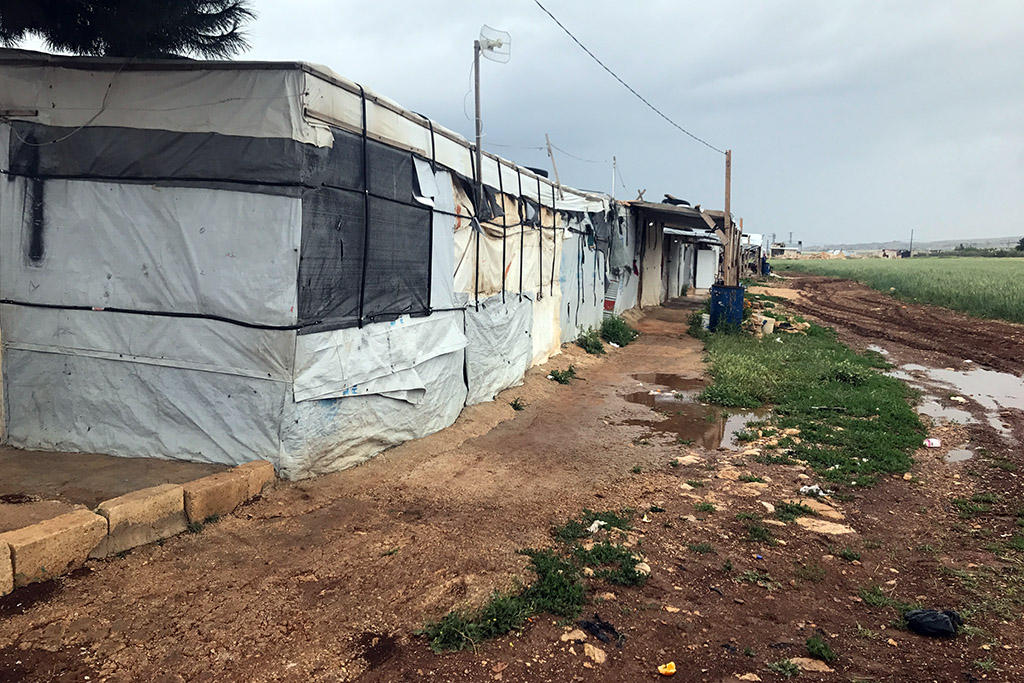
“We are comparatively well off,” says Mohammed. He lives in a camp consisting of a few dozen tents that are lined up like terraced houses. “We have been here for five and a half years,” his wife Zaynab explains.
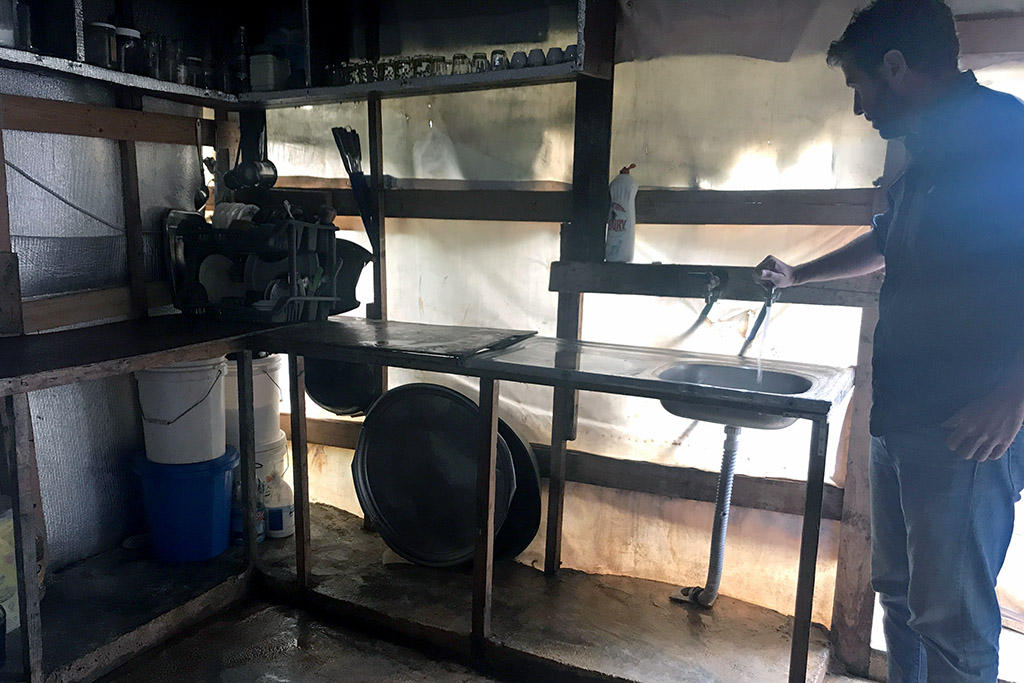
The family of four lives in two rooms. Their monthly allowance is CHF20 ($20) per person. They count themselves lucky.
“We don’t really have any issues with the local community or the local people. We leave each other in peace,” Mohammed says. But peace is tenuous. Deep-rooted resentments exist and are sometimes fanned by political actors. The Lebanese haven’t forgotten that Syrian armed forces were stationed in their country until 2005.
“The most important thing is that our children can go to school here, and we have water,” Mohammed emphasises. Indeed, the kitchen has running water coming from a tap, the toilet is in the annex.
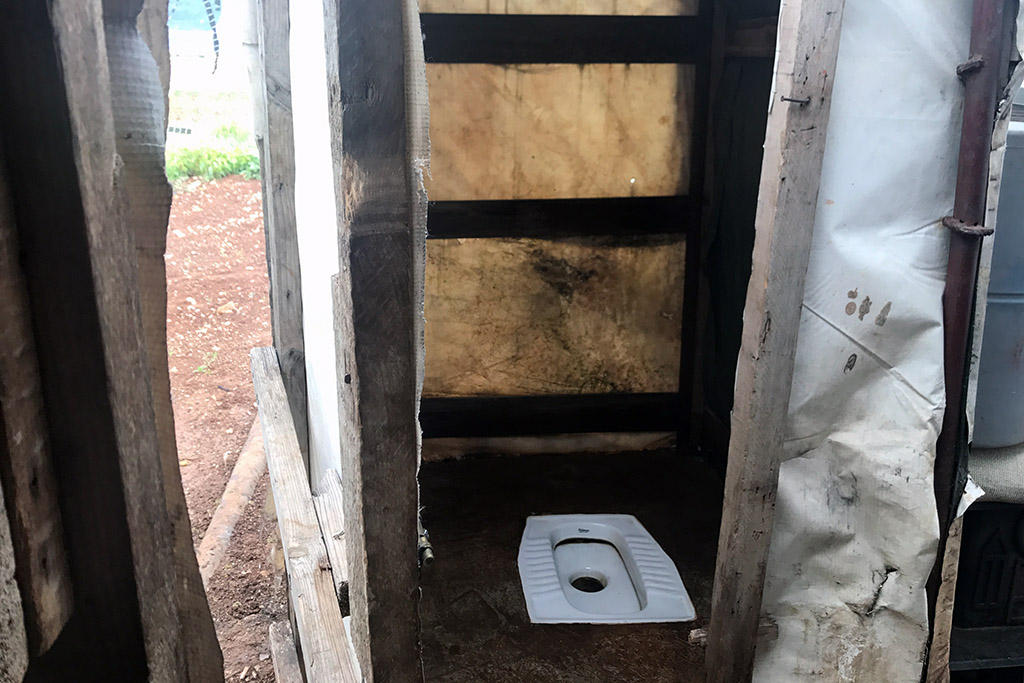
“The water is being illegally drained from the government’s system. The local community often turns a blind eye, but sometimes they cut off the water supply for a few days. The alternative is to get the water from private companies with the costs being covered by NGOs,” Beck explains. Drinking water from the government’s pipelines is significantly cheaper.
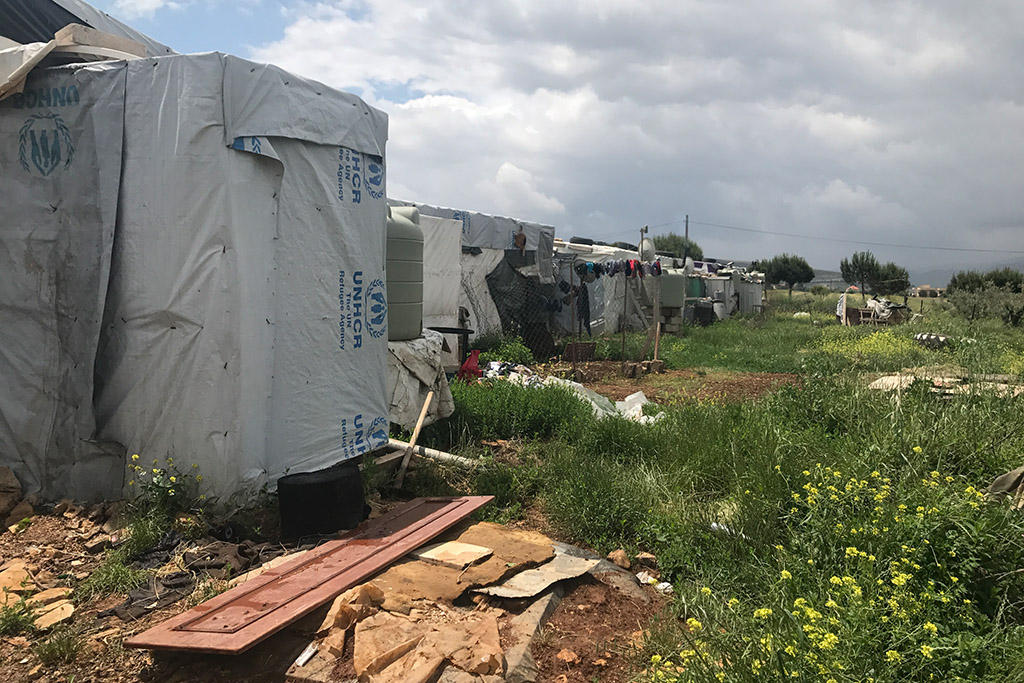
The BWE is short of cash. Most local households do not pay for their water. Beck notes: “Some people simply cannot afford it, while others don’t trust state institutions. The population is used to the fact that many things don’t work properly and they don’t see why they should pay for it.”
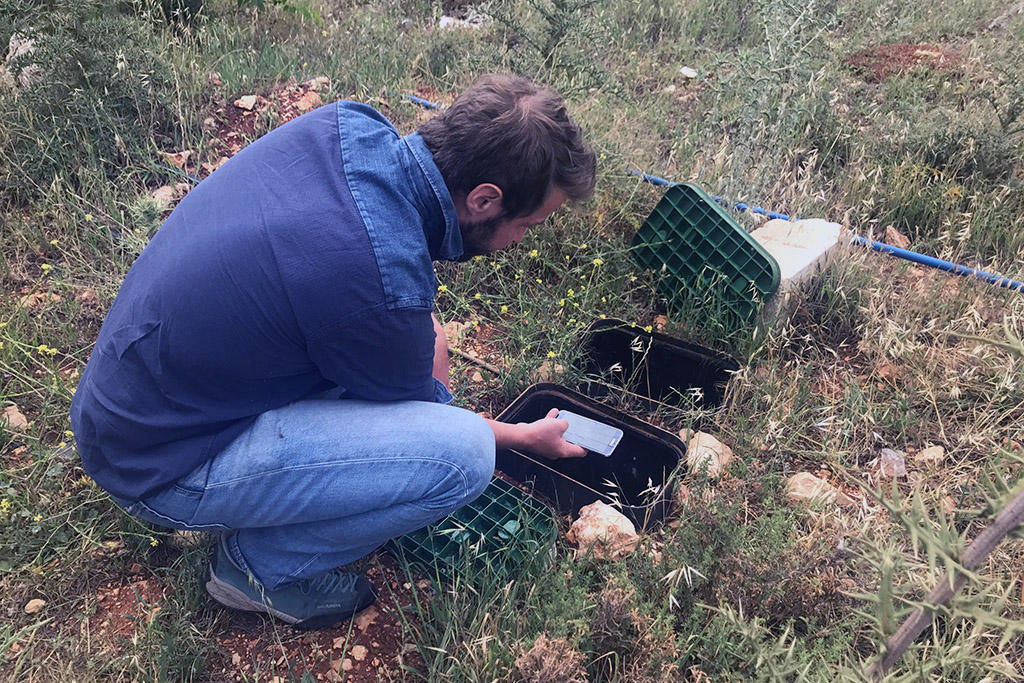
The team has installed meters on the water pipes in the camp which they read once a week. “This is a small measure which helps us get an idea of how much water is being consumed. A good basis to work with,” Beck says. He is keen to find out how much money the state is losing. He has neither helper syndrome nor the need to sit at a desk all day. It’s obvious that he likes being in the field. “I love the direct contact with the locals and my colleagues here. Many NGOs are based in Beirut and only come here quickly, do something and leave again.”
“This country is riddled with problems but the hospitality of the people is certainly not one of them.”
Beck is not only a technical expert in Lebanon, he is also a bit of a diplomat. He is known all over his neighbourhood in Beirut and no matter where we go, we always bump into someone saying “Hi” or “Kifak?” (How are you?). He has many Lebanese friends, which is rather unusual for an expat. “This country is riddled with problems; however, the hospitality of the people is certainly not one of them,” he says. Beck has a rugged charm. He likes to laugh and does so loudly. He has also learnt how to make Lebanese small talk and be patient. People certainly don’t rush into things here.
Politics mixed with chicken
The negotiation process seems to me like a barn dance. A meeting with the president of the municipal association of West Baalbek, Nassar, is a good example for this. We are served sweet tea in his office while having a 30-minute chat before we are served chicken. Nassar does not accept our pleas that we have already eaten. He only laughs saying: “This is the Baalbek way”.
Beck and his colleague Darine Saliba want the green light for a project. It aims at connecting environmental protection with tourism and promoting dialogue in the region. The latter is not necessarily easy. The Baalbek region is politically delicate.
Green, yellow and red: a country of zones
The balance of power is different from village to village in the Bekaa Valley. Family clans determine the confessional-political structure. You may call it Lebanese mafia, but you could also simply say: “It’s tough to live here without support.”
“I like the directness of the Swiss”
Darine Saliba knows who belongs to what group; what’s important in which village; what an alliance should look like and what matters are better not discussed. She grew up in Zahlé and knows the Bekaa like the back of her hand. The social worker used to work with Iraqi refugees as well as prison inmates. She has worked for the Swiss team for one-and-a-half years and bridges linguistic differences. How is it to work with a Swiss boss? Saliba ponders: “I like the directness of the Swiss. You always know where you stand.“
On our drive from Baalbek via Aaniar to Chamsine, Saliba gives me a crash course in Bekaa politics. Lebanon is divided into green, yellow and red zones. Apart from a few exceptions, the green zone in Beirut is safe. You need to be cautious in the yellow zone, and hardly any foreigners ever enter the red zone. It is not advised to travel there. Whenever Beck’s team drives through certain areas, they must obey safety rules and send their exact location by text message to the Swiss embassy in Beirut.
We arrive in Chamsine village near the Armenian-influenced town of Aaniar. The landscape is lush and green. The well here is a private pumping station that works for the BKE. We enter the site and Beck takes me on a little tour explaining how it works: “The water is pumped up and treated with chlorine to make it drinkable.”
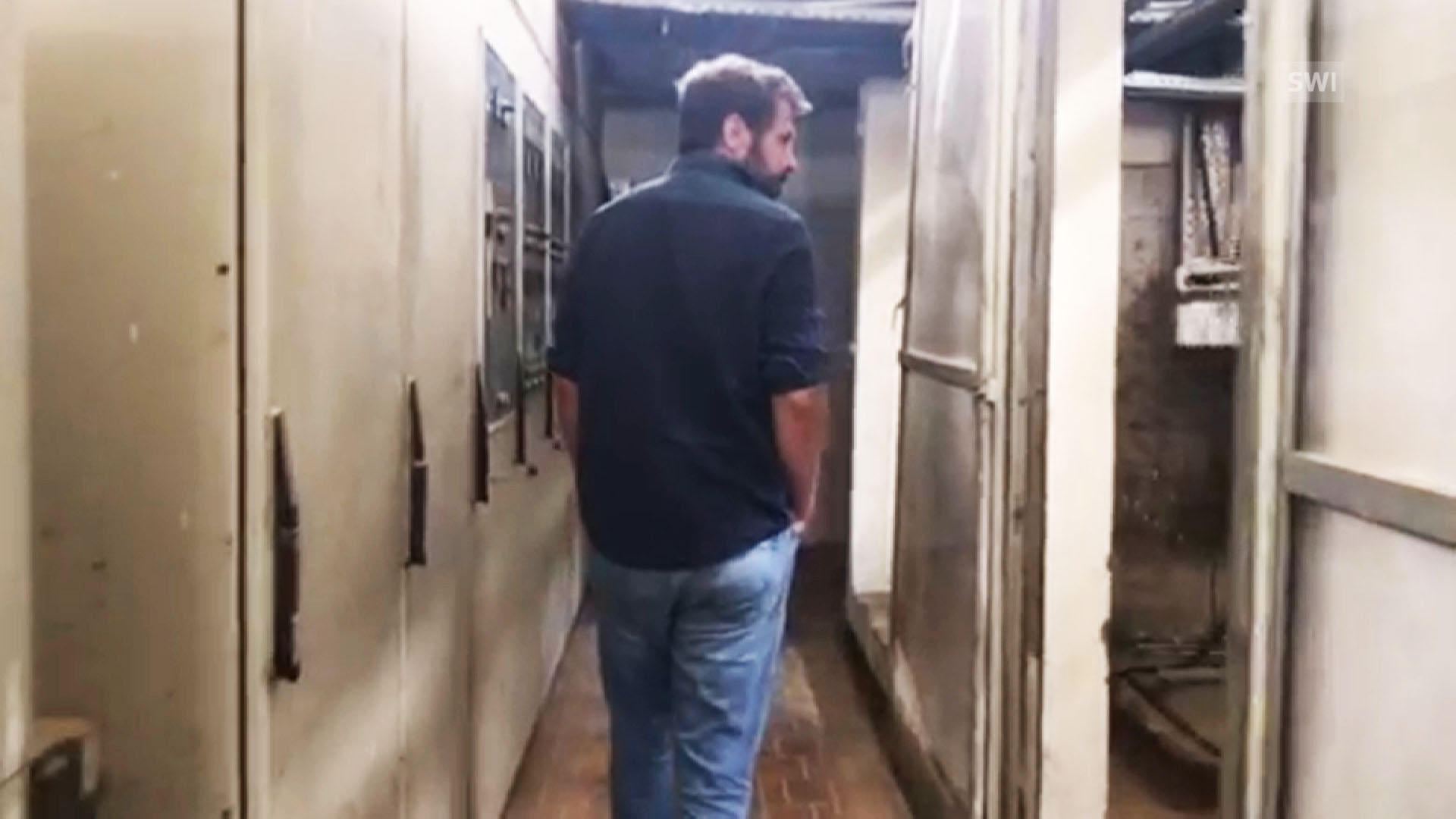
More
The source in Chasmine
It’s not Beck who installs the technical equipment for the water and waste water management in the Bekaa Valley. A big part the work of his team of five is to train the local staff, promote dialogue, find cooperation partners, apply control processes and facilitate the work of the experts in the field. He set up a small lab in Zahlé where he can test the quality of the waste water.
How to carry on after three years?
The work is arduous. “It demands a lot of patience,” the engineer observes. “It’s impossible to completely change the system. That’s why you have to think small.” With CHF4 million, the project budget for three years is rather low. Beck, however, prefers this approach to bigger ones whereby experts are deployed to anywhere in the world, set up expensive systems and once they leave the facilities are not maintained. “I try to work with the material we can get locally.”
“It’s impossible to completely change the system.”
He wants to establish sustainable structures: “This is what development cooperation stands for. We also have to focus on conflict prevention.” Beck’s mission ends in spring 2019. What will happen next? “I don’t know. I really like it here but by the same token there are other interesting places and projects in the world.” He thinks and adds in almost Lebanese manner: “Let’s wait and see.”
(Transparency disclaimer: Due to the security situation in the reporting area, the author was exclusively travelling with the team of the Swiss Cooperation Office. She also underwent the official security briefing of the Swiss embassy in Beirut. swissinfo.ch covered the total cost of this trip.)
Collaborators: Helen James, Kai Reusser, Julie Hunt
Contact the author on Twitter: @marguerite_jayExternal link

In compliance with the JTI standards
More: SWI swissinfo.ch certified by the Journalism Trust Initiative


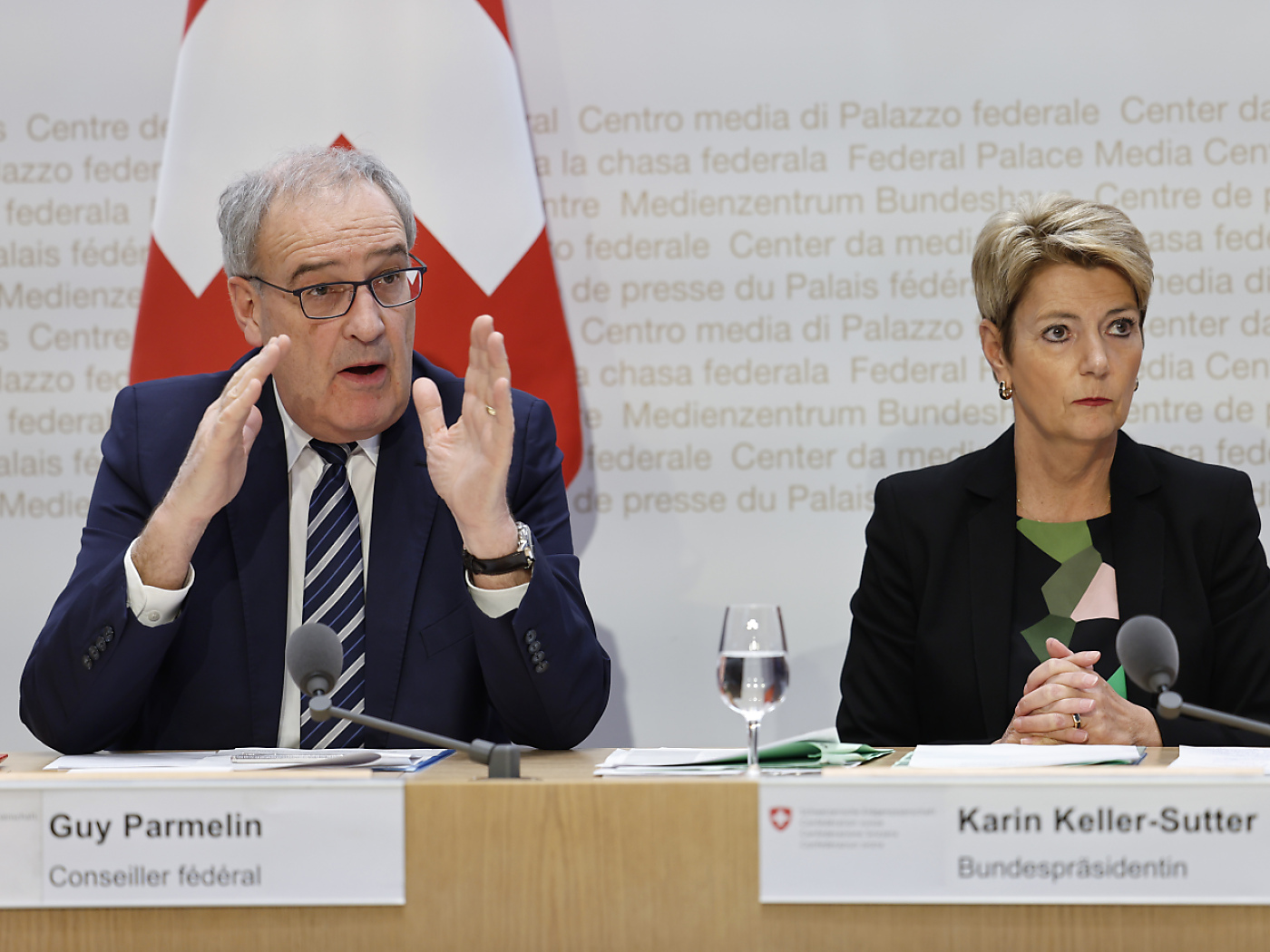






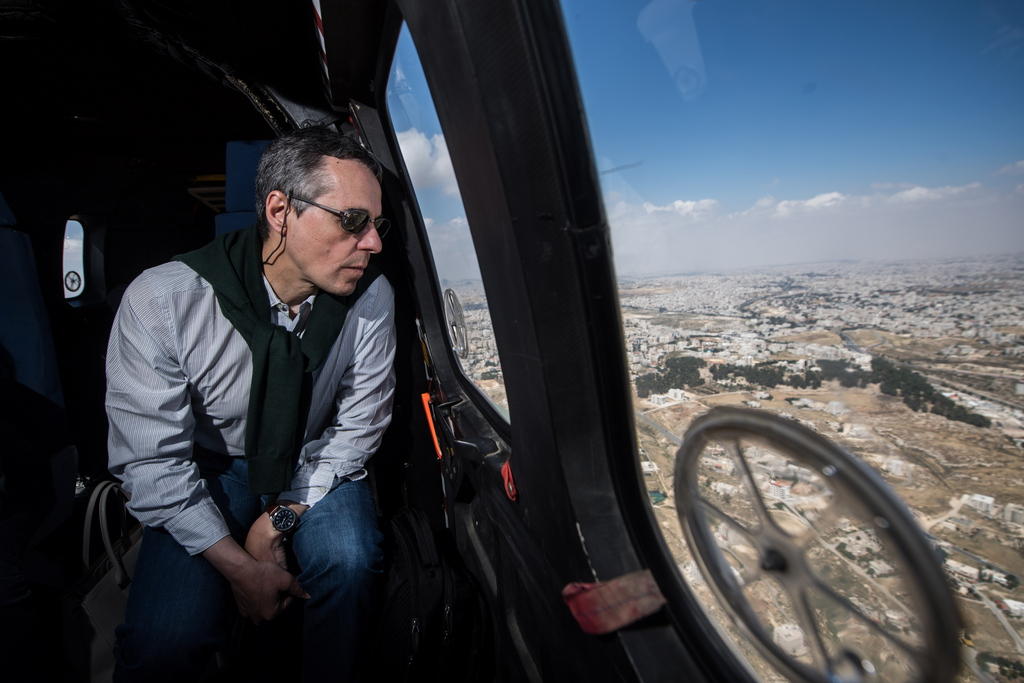
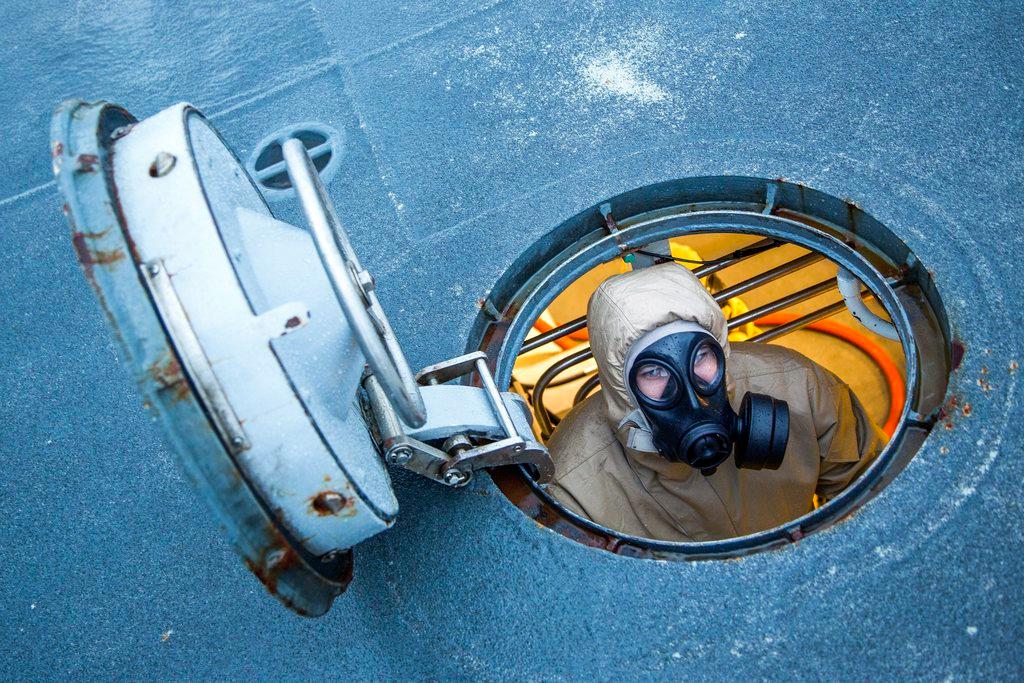
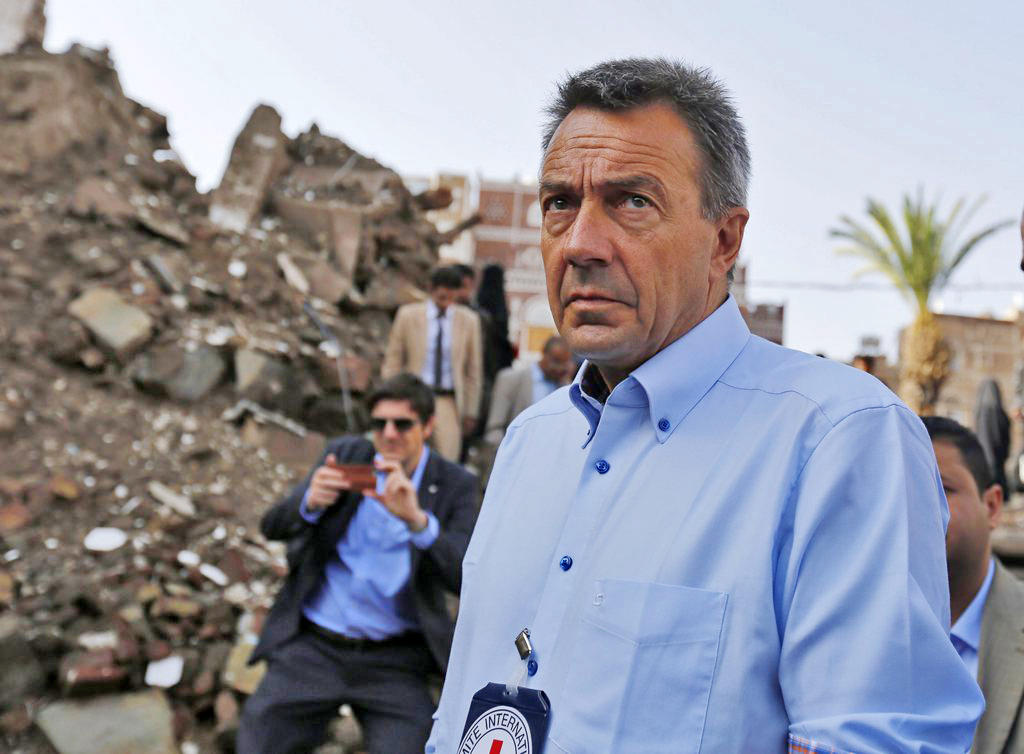
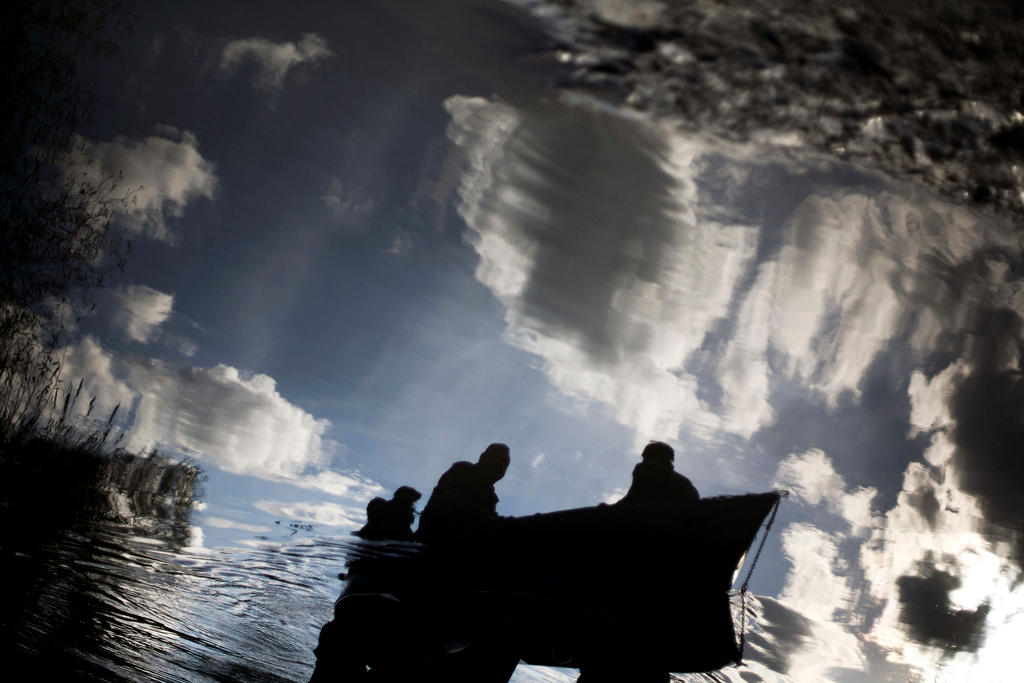
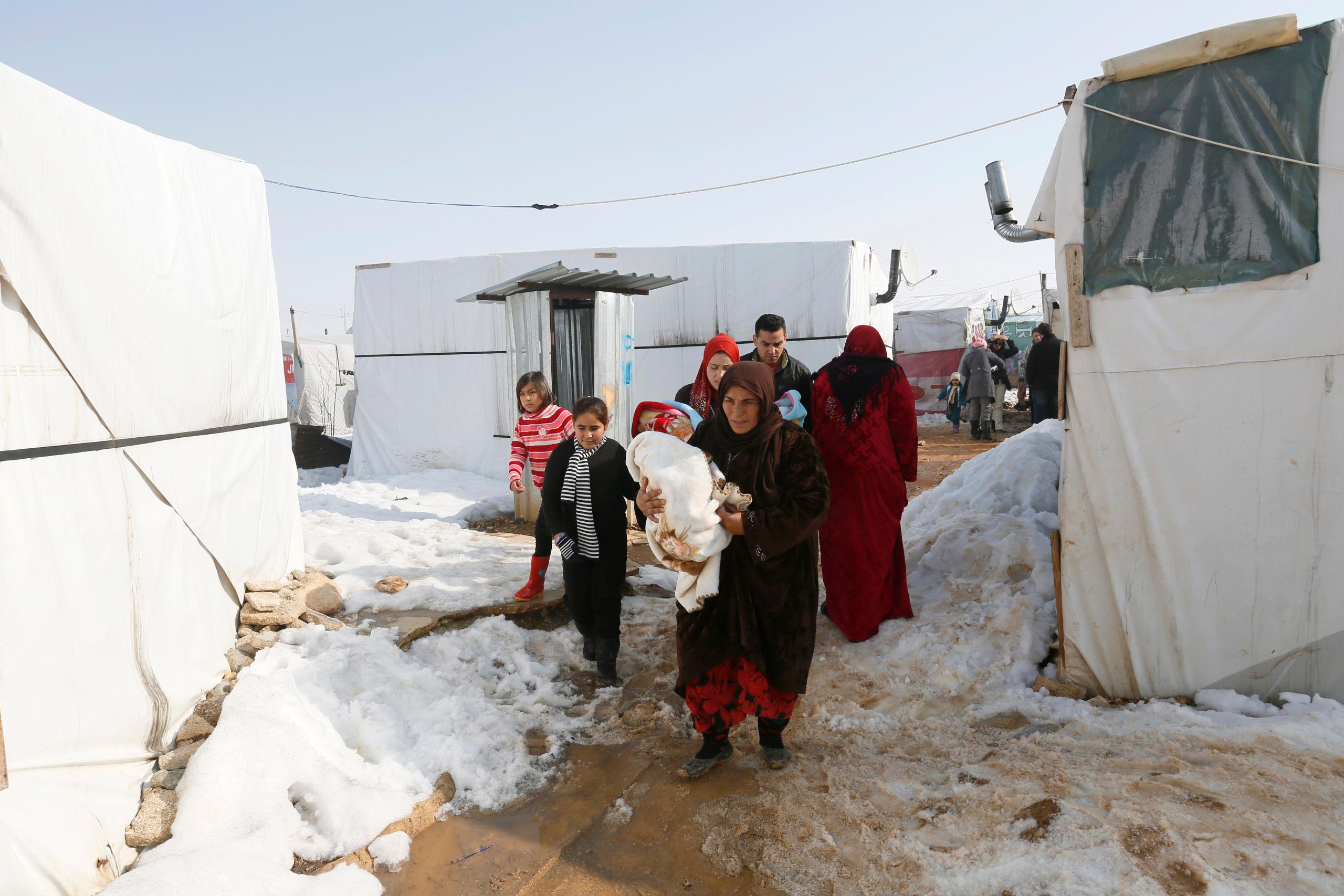

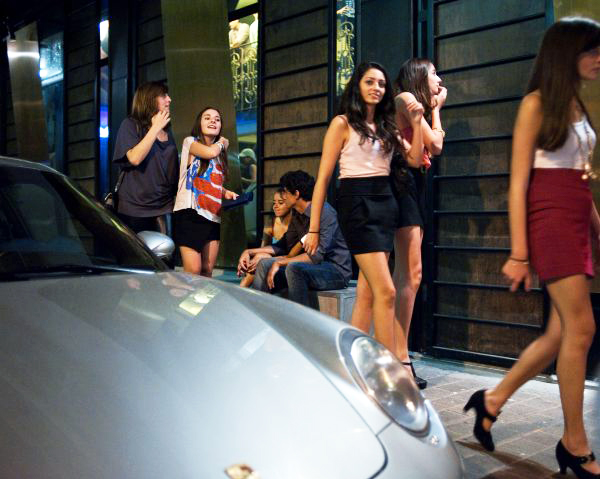

You can find an overview of ongoing debates with our journalists here . Please join us!
If you want to start a conversation about a topic raised in this article or want to report factual errors, email us at english@swissinfo.ch.